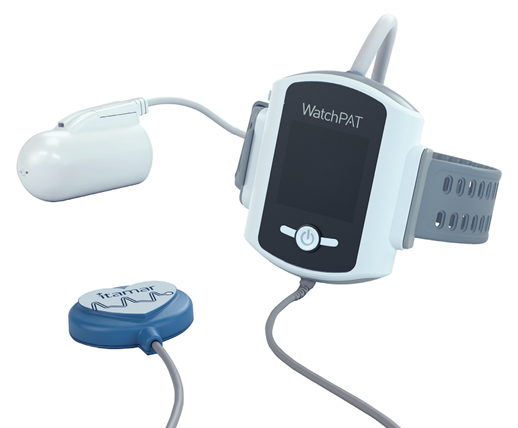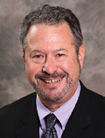A simple device called the WatchPAT can help diagnose a serious sleep disorder.
 Having trouble falling asleep is more common than you think.
Having trouble falling asleep is more common than you think.
Sleep disorders affect between 50 and 70 million adults in the U.S. and can lead to a variety of health problems, including high blood pressure and an irregular heartbeat.
One of the most serious disorders is obstructive sleep apnea, which affects 25 million adults in the U.S., according to the American Sleep Association. Those who are affected snore loudly and repeatedly stop breathing during the night. This causes them to wake up, gasping for air.
Accurate At-Home Tests
To diagnose sleep apnea, a sleep study is required. During the night, a patient’s heart rate, breathing patterns, and blood oxygen levels are monitored. Thanks to advances in technology, most of these studies can now be done from the comfort of home—and are more accurate than ever.
To simplify home testing, the Center recently purchased 10 WatchPAT units, which are worn like a wristwatch and come with a finger probe and a quarter-sized sensor, which is taped on the chest. The unit, which has a disposable version, detects all types of sleep apnea. The report is transmitted to the sleep center via a smartphone app.
“There are fewer attachments, so the unit is easier to use and less prone to fall off while a patient is sleeping,” says Center manager Daniel Betts.
“We’ve compared these devices side by side with in-Center sleep studies and have been extremely pleased with the accuracy,” adds Gerald Ferencz, MD, Medical Director of the Center: “For the huge number of people who have sleep apnea, this device has been a game-changer.”

What’s an Accredited Sleep Center?
Community Medical Center’s Center for Sleep Disorders has been accredited by the American Academy of Sleep Medicine since 2001. This helps to ensure that patients receive accurate diagnoses and top-notch treatments.
“Registered polysomnographic technologists review the information they receive from sleep studies, and a board-certified sleep physician interprets your results,” says Center manager Daniel Betts. “There’s a higher standard of care we must adhere to.”
Take the sleep test to see if you’re at risk for a disorder. For a referral to a sleep medicine specialist, call the Center for Sleep Disorders at (732) 557-2798.